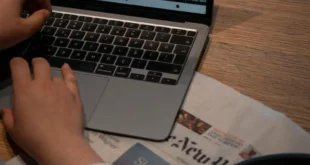Despite the media free zone law being held up in parliament, the Jordanian Media City Company is up and running
It's Dubai Media City and Egyptian Media Production City that have been making news in the trade press across the Middle East. But Jordan, the first in the region to raise the idea of creating a media free zone, now has such a project too—a project that was launched despite the fact that the Kingdom's much-debated media free zone law has yet to be passed.
The Jordanian Media City Company, which is operating a large production and uplink center in Amman, was established as a private free zone by Sheikh Saleh Kamel's Dallah Media Production Company—and the media city's main tenant and client is the Sheikh's own Arab Radio and Television (ART) network. The facility was acquired only six months ago, but ART has already, for several months now, been using one of the two 600-square-meter studios for production of five of their programs.
A good part of the reason for the rapid startup is that so much was already in place. The complex was originally built in 1978 and started operations in 1982 as the joint government/private sector Jordan Production Company. The company went under in 1991, and the facility has been out of use ever since.
But the twenty-year-old infrastructure was still in excellent condition. "This was the best facility built in the Arab world, from a technical standpoint and an architectural one," says Radi AlKhas, ART vice president for technology and development, who is overseeing the startup of the media city project—as he did for other ART facilities, including the state-of-the-art facility in Avezzano, just outside of Rome. The building itself underwent a $1.5 million overhaul, which included adding Internet connections throughout. Some of the old equipment, such as lighting and sound mixers, could still be used. Digital equipment, including studio cameras and edit suites, was moved in from Avezzano, which ART initially considered a major production center. "Because of the expenses there, and of getting our people there, we've moved some of the equipment to the Middle East, both to Lebanon and to Jordan," says AlKhas.
Brand-new, though, is the $2 million of uplink equipment, encoders, and multiplexers; ART currently receives eleven of its channels here, encrypts them, and sends them out on Arabsat. Starting next year they'll add to that ART's newly acquired STAR Select channels. There are reception-only Asiasat dishes positioned on the roof, and plans, as clients move in and demand increases, to build more uplinks. "This is the first private uplink from the Arab world," says AlKhas.
Despite ART's close relationship with the project, they are treated as any other client. AlKhas is in negotiations with other broadcasters who could rent production space, office space, and use of facilities. "The advantage for a broadcaster who might be looking at coming here is that you aren't under any government control. The whole area is a free zone. That also reduces cost, because we can import equipment tax-free. There is no license for the uplinking, so the total cost for someone who wants to operate from here is significantly less than elsewhere."
The media free zone law that was heavily debated in Jordan's parliament last year never was passed, which means the company is operating under the country's general free zone laws applicable to any commercial operation. Says AlKhas: "To be able to do this we made an agreement with the government that we'll operate under the free zone law—commercial law, not specific to media—and anything specific to media such as uplinking was put in an agreement between our company and the Jordanian government. The parliament may have been afraid that under a media free zone law anyone, not just well known and respected broadcasters, could come and set up in Jordan. How sure can they be that they know the companies, they know the owners? This works because it's an agreement between the government and a well-known and reputable company."
"His Majesty King Abdallah met with Sheikh Saleh and gave his full support to the project," says AlKhas, who sees this arrangement as part of a favorable climate for the media in Jordan and predicts that the next parliament will pass a media free zone law. "Jordan believes in the deregulation of the media, and is forming a regulatory body, analogous to the FCC, to issue licenses for private sector channels. With this type of opening up, you get competition, which is a challenge for everybody and works to everybody's advantage."
 Arab Media & Society The Arab Media Hub
Arab Media & Society The Arab Media Hub




